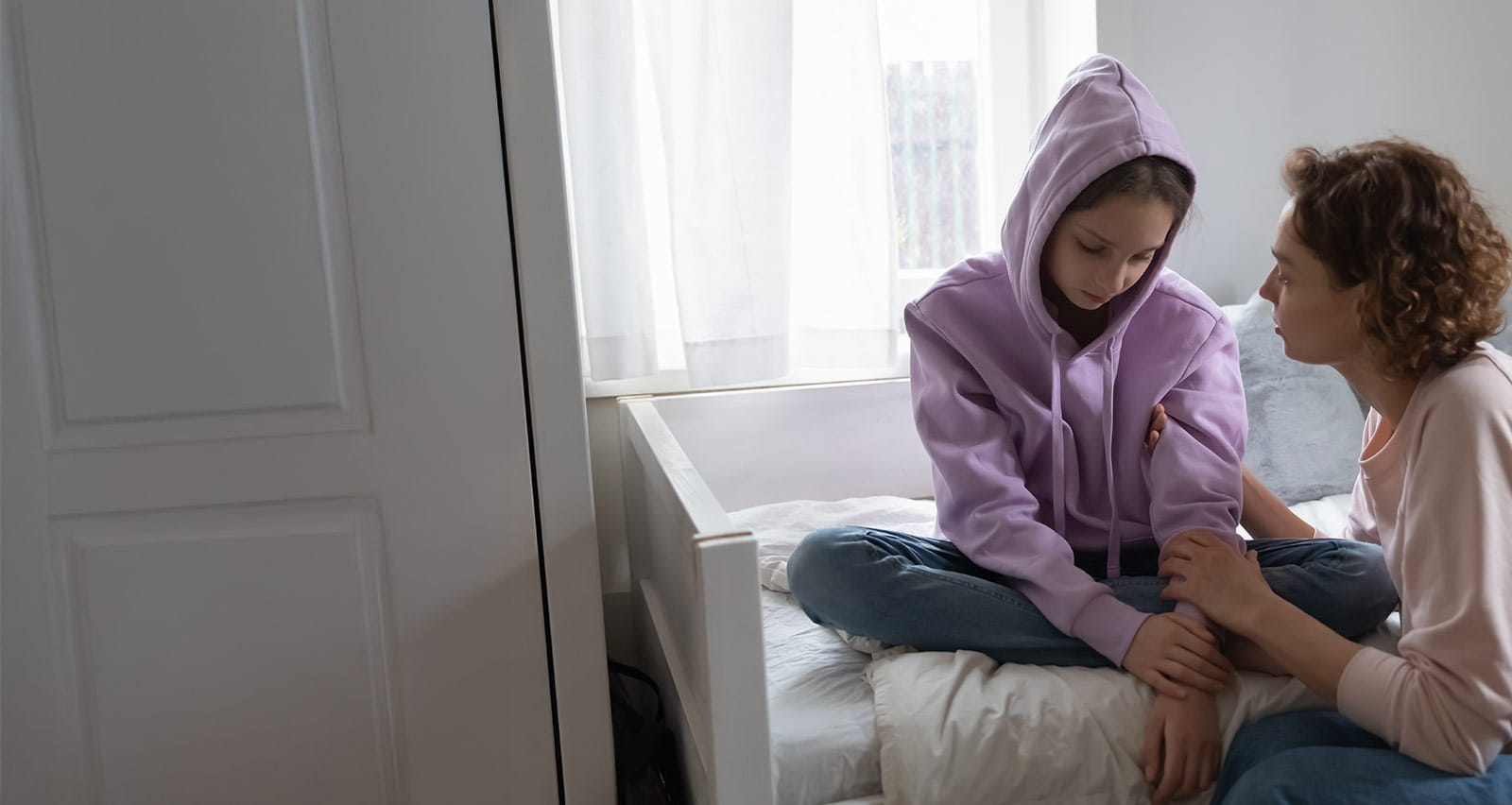
Incontinence (Enuresis) in Children
Urinary incontinence is the loss of bladder control. It occurs when children who are past the typical age of full bladder control continue to have accidents. Incontinence can happen during the day, at night or both, and has many potential causes. The pediatric urologists at University Hospitals Rainbow Babies & Children’s have expertise in diagnosing urinary incontinence in children and helping families develop management strategies.
Make an Appointment with a Pediatric Urologist
To learn more about our pediatric urology services or to make an appointment, please call 216-844-5661.
Schedule OnlineTypes of Enuresis in Children
There are four main types of enuresis:
- Diurnal incontinence: Loss of bladder control during the day.
- Nocturnal enuresis: Bedwetting, or loss of bladder control at night. This is the most common form of incontinence.
- Primary incontinence: This occurs when a child has not fully mastered toilet training for day or night continence.
- Secondary incontinence: This is when a child experiences periods of wetness after having been fully toilet trained.
Incontinence Causes
Incontinence has many possible causes. These can include anatomical problems, hormone issues, medical conditions and emotional or psychological factors. Some common causes include:
- Anxiety or stress
- Attention deficit/hyperactivity disorder (ADHD)
- Caffeine use
- Chronic constipation
- Diabetes
- Genetics or family history of bedwetting
- Not enough antidiuretic hormone (ADH) in the body during sleep
- Obstructive sleep apnea (OSA)
- Overactive bladder
- Small bladder
- Structural problems in the urinary tract
- Unable to detect full bladder while asleep
- Urinary tract infection (UTI)
- Urination problems, including not going often enough, not urinating enough when going or stopping urine stream before finishing (dysfunctional voiding)
- Very deep sleep
Incontinence Diagnosis
It is normal for children under 3 to not have full bladder control, and occasional accidents after that age are not usually cause for concern. If your older child experiences persistent accidents either during the day or at night, their pediatric provider can help provide a diagnosis.
Your child’s provider will perform a physical exam and ask questions about your child’s health history, including:
- How often does your child urinate during the day?
- How much does your child drink in the hours before bedtime?
- Is your child constipated?
- Is there a family history of enuresis/bedwetting?
- Are there any other symptoms, such as pain with urination?
- Has your child experienced stress, anxiety or other behavioral health problems? Other tests, such as blood, urine and imaging tests may be conducted to look for other health problems that may be causing the enuresis, such as a urinary tract infection or diabetes.
Incontinence Treatment
In most cases, incontinence goes away over time and does not need to be treated. If necessary, there are a variety of treatments and management strategies that can help. These include:
- Behavioral changes, such as limiting fluids at certain times of day, making sure to empty the bladder completely before bed, and waking on a schedule to use the bathroom.
- Eliminating or limiting caffeine, which can be found in soda, chocolate, and beverages like tea and coffee.
- Medications to calm an overactive bladder.
- Using a moisture alarm, which alerts your child to nighttime wetness and over time can help train them to detect the sensation of a full bladder while sleeping.
- Talking with a mental health professional, psychologist or therapist to manage anxiety, trauma or emotional challenges.
- Managing or treating any underlying medical conditions, such as infections or diabetes.
You can work with your child’s healthcare provider to determine which treatment options will work best for your child.
Learn More About Our Pediatric Urology Program
To learn more about our pediatric urology services, please call 216-844-5661.


